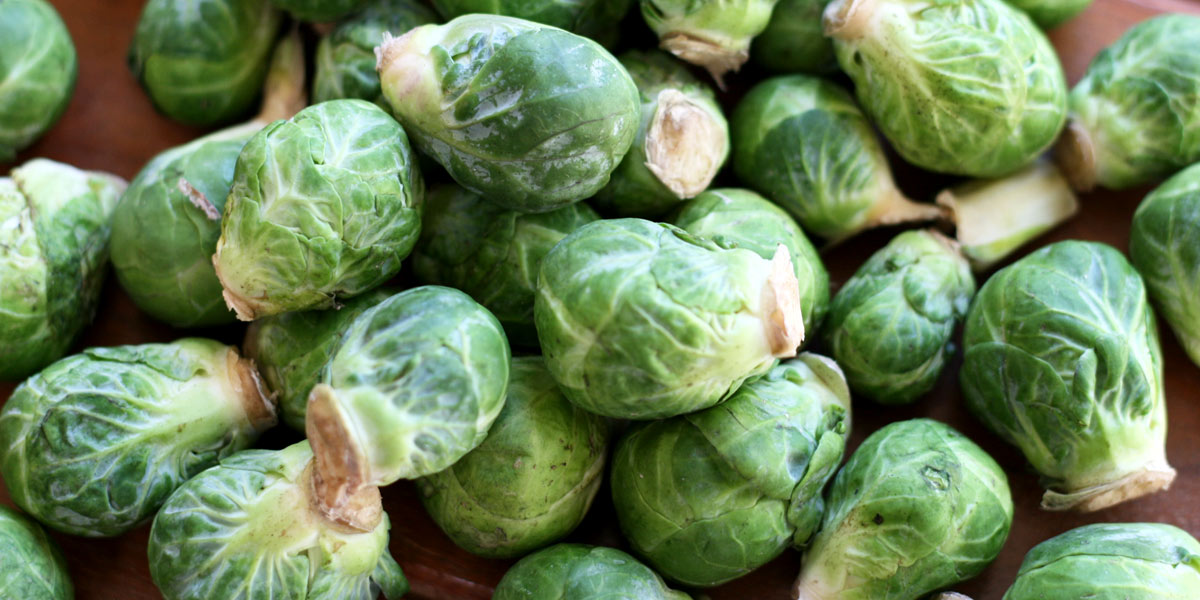Brussels Sprouts
One of my favorite trendy little veggies, brussels sprouts are having a major moment. The foodie community is reinventing this formally scoffed vegetable the world over, and movements like slow-food and farm-to-table are helping to spur the trend. Brussels sprouts taste really delicious sautéed, blanced, steamed, or roasted and are even quite tasty shaved thin and raw. I like brussels as a side dish, on pizza (seriously), in salads, grain dishes, and pasta.
- When brussels are steamed, they provide some serious cholesterol lowering benefits. Steamed sprouts are more effective at binding with bile acids in your digestive track. When these acids are passed from the body, your cholesterol subsequently lowers as well.
- Brussels sprouts offer cancer protection due to four specific glucosinolates: glucobrassicin, sinigrin, and gluconasturtiian. These compounds work together to detoxify the body, provide antioxidant support, and reduce whole body inflammation.
- One cup of cooked brussels provides about 243% of your daily recommended Vitamin K, and 128% of your recommended Vitamin C. Vitamin K is essential for responding to injuries, bone health, and preventing calcification of arteries. Vitamin C is imperative for a functioning immune system, growth and repair of tissues, and blocking the damage of free radicals as a powerful antioxidant.
- Brussels are packed with fiber for a proper digestive system, folate, manganese, and a host of other beneficial vitamins and minerals.
Vegukate Tips:
Brussels sprouts usually show low pesticide residue, so feel free to pass on organic if need be.
Select sprouts that are firm, compact, and bright green without yellowing leaves. You can keep unwashed and untrimmed brussels sprouts in the refrigerator for about two weeks. Before eating your sprouts, wash and trim off the outer leaves in case of hiding insects.
-
Lemon Parmesan Broccolini and Brussels Sprouts

Seasonal green veggies + zesty lemon + nutty Parmesan = my new favorite side dish. Read the recipe
-
Ghee Roasted Brussels Sprouts with Maple Tahini Dressing

Roasted Brussels sprouts + salty and nutty ghee + creamy tahini + sweet maple syrup = the best way to get your cruciferous veggie on. Read the recipe (2 comments)
-
Everything Green Nourish Bowls with Tahini Cilantro Dressing

Savory spinach cakes + creamy avocado + crispy roasted brussels sprouts and broccoli + a delicious tahini cilantro dressing = the greenest nourish bowl, ever. Read the recipe (1 comment)
-
The Winter Bowl

The year of the Bowl Meal + A hearty Winter Bowl to get you through chilly months. Read the recipe (4 comments)
-
Autumn Harvest Bowl

In this recipe, we’re taking the best seasonal produce and letting them shine in a bowl of harvested goodness. Brussels, squash, pomegrantes, and kale...what could be better? Read the recipe (6 comments)
-
Balsamic Glazed Brussels Sprouts Quinoa Salad

Brussel sprouts are foodie fanfare. They're delicious, nutritious, and taste amazing with sweet balsamic in this simple quinoa salad. Read the recipe

